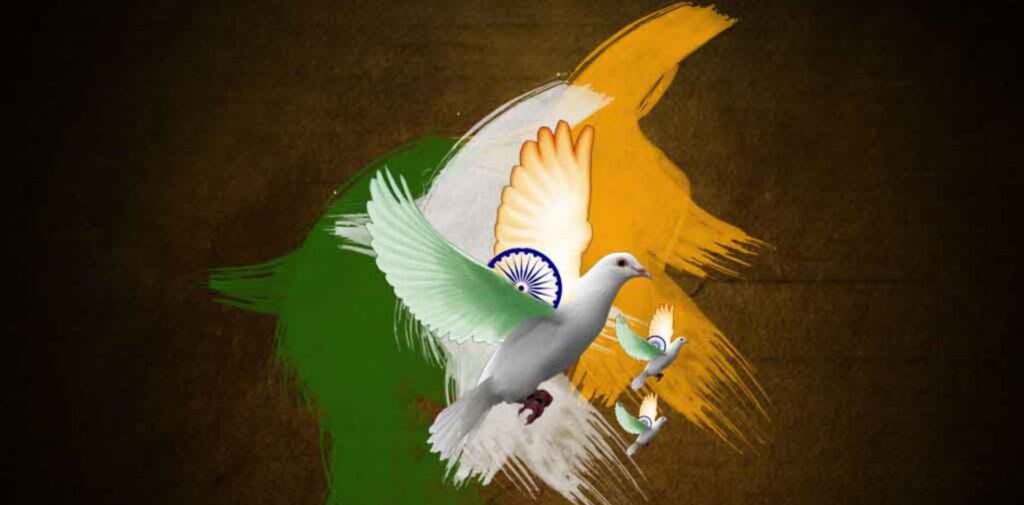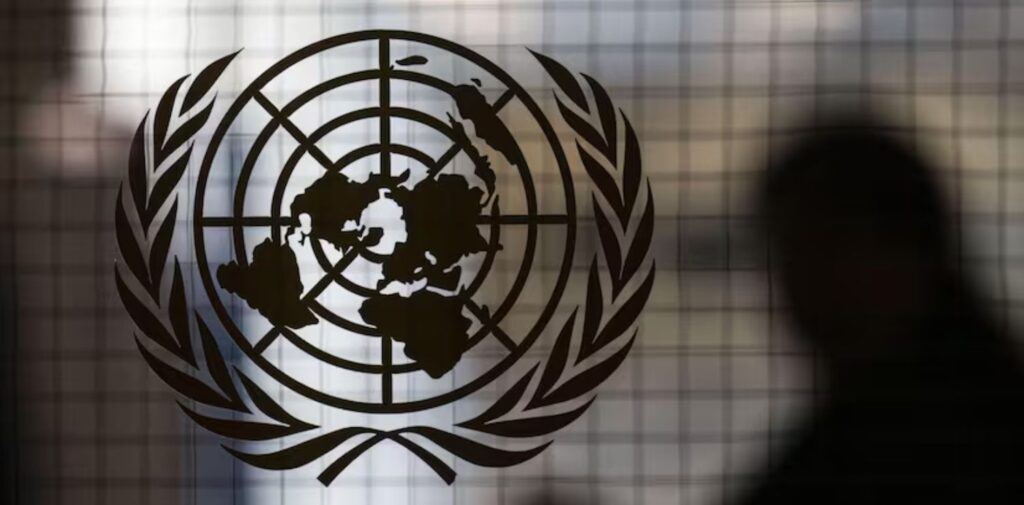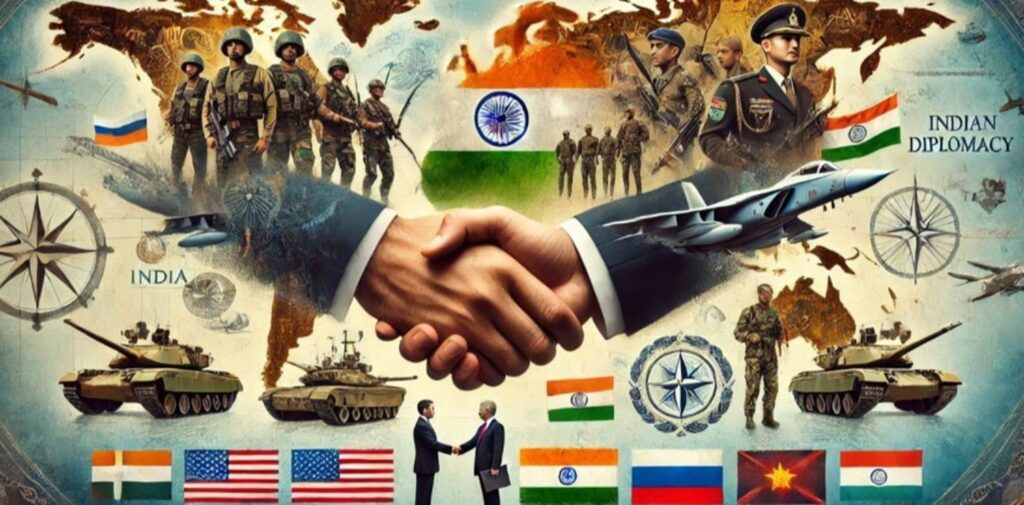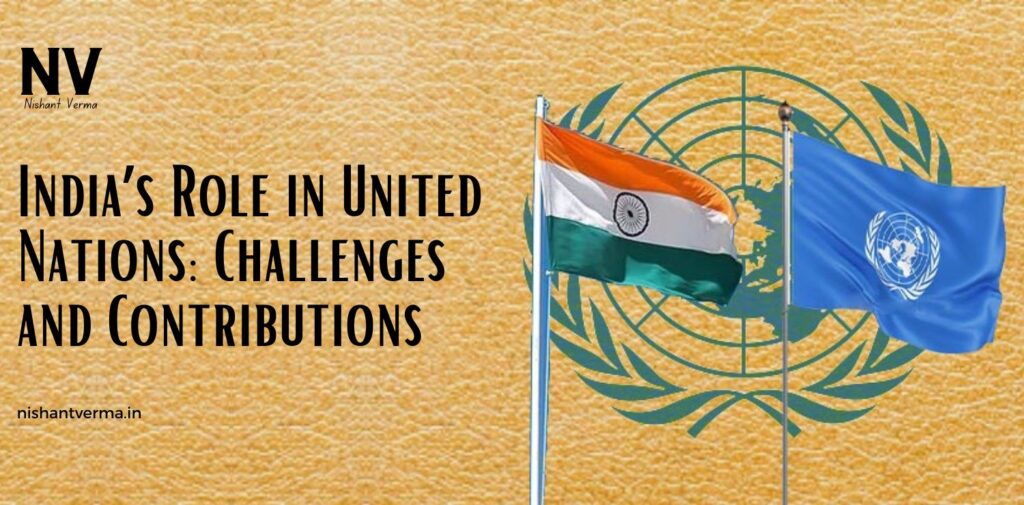India, as one of the largest and most influential countries in the world, has always been an active participant in international diplomacy. A significant platform where India plays a vital role is the United Nations (UN). The UN is an international organization founded in 1945 to maintain peace and security, promote cooperation among nations, and address global challenges like poverty, health, climate change, and human rights.
India has been a member of the United Nations since its inception and has contributed significantly in various capacities. In this article, we will explore India Role in United Nations, its major contributions, and the challenges it faces while working with this global body. We will also discuss how India, including places like Hisar, can benefit from understanding its UN engagements.
India’s Long-standing Engagement with the United Nations
India has been a part of the United Nations since 1945, and its relationship with the UN has been shaped by the country’s vision for peace, security, and development. As a founding member, India has supported the UN’s goal of promoting international cooperation and has used the platform to raise issues important to its own development and the well-being of its citizens.
One of the key contributions of India to the UN has been its leadership role in peacekeeping missions. Over the years, India has contributed thousands of soldiers to peacekeeping operations across the globe, from Africa to the Middle East, helping maintain peace and stability in conflict-ridden regions. India has been one of the largest contributors to UN peacekeeping forces, reinforcing its commitment to global peace and security.
India also consistently advocates for the reforms within the UN system, particularly the UN Security Council (UNSC). It believes that the current structure of the UNSC does not reflect the changing dynamics of the global order, especially with the rise of countries like India, China, and Brazil. India’s call for a permanent seat in the UNSC is one of the significant aspects of its UN engagement, as it believes that the Security Council must reflect the realities of the 21st century.

India’s Contributions to Global Peace and Security
India’s contributions to global peace and security have been substantial. It has participated in various UN peacekeeping operations and supported resolutions aimed at preventing conflicts. India’s defense forces have been deployed in numerous peacekeeping missions under the UN banner. This reflects India’s strong commitment to global peace, even in difficult and dangerous circumstances.
In addition to its active participation in peacekeeping, India has played a significant role in promoting disarmament. India has been a long-time advocate of nuclear disarmament, and it actively participates in global discussions on the non-proliferation of weapons of mass destruction. India’s foreign policy emphasizes the importance of global security and non-violence, as reflected in its efforts to promote peace across borders.
India has also contributed to global peace by supporting the UN’s initiatives on counter-terrorism. India has faced numerous challenges related to terrorism, both domestically and regionally, and it has used the UN platform to emphasize the need for a global approach to countering terrorism. The country has consistently called for stronger international cooperation to fight terrorism, pointing out the importance of sharing intelligence, freezing terrorist assets, and prosecuting perpetrators of violence.
Promoting Sustainable Development and Human Rights
India has consistently emphasized the importance of sustainable development and human rights at the UN. As a developing country, India understands the challenges of poverty, inequality, and environmental degradation, and it advocates for a balanced approach to development that focuses on people, the planet, and prosperity.
India’s significant role in the UN’s Sustainable Development Goals (SDGs) is noteworthy. India has set ambitious goals for itself, particularly in areas such as poverty eradication, clean energy, healthcare, education, and gender equality. India actively participates in international conferences, shares knowledge and experiences, and aligns its national policies with the SDGs.
India also plays a crucial role in promoting human rights on the global stage. India’s approach to human rights is rooted in its ancient philosophical values of equality, justice, and non-violence. At the UN, India has advocated for the rights of marginalized communities, including women, children, minorities, and indigenous people. India has also been vocal about the need to address social issues such as caste discrimination and gender-based violence.

Challenges Faced by India at the United Nations
Despite its significant contributions, India faces several challenges while engaging with the UN. One of the major hurdles is the issue of Security Council reform. India has long called for a permanent seat on the UN Security Council, but this request has faced resistance from some member countries, particularly the five permanent members (P5) — the United States, Russia, China, France, and the United Kingdom. India believes that the current structure of the UNSC reflects the global realities of 1945, not the current geopolitical landscape, and therefore, it should be reformed to accommodate emerging powers like India, Brazil, and Japan.
Another challenge India faces is balancing its national interests with global commitments. As a developing country, India is still grappling with issues like poverty, unemployment, and infrastructure deficits. These challenges sometimes make it difficult for India to fully support some international initiatives that may require significant financial or technical resources. However, India continues to prioritize its contributions to the UN while also addressing its domestic concerns.
Furthermore, India’s stance on some global issues, such as climate change, is sometimes at odds with developed countries. India advocates for the principle of “common but differentiated responsibilities,” meaning that developed countries should bear more responsibility in tackling climate change because they have historically contributed more to environmental degradation. This has led to disagreements in international climate negotiations, as some developed nations feel that India should take on more ambitious targets.
India’s Role in Peacekeeping Missions and Humanitarian Assistance
India has been an active player in UN peacekeeping missions for decades. The country has provided troops to several UN operations, contributing to peace and stability in regions such as Congo, Lebanon, and the former Yugoslavia. India’s peacekeeping forces have often been praised for their professionalism, discipline, and commitment to protecting civilians in conflict zones.
Apart from peacekeeping, India also contributes to humanitarian missions under the UN. Whether it’s disaster relief, providing food and medicine, or offering support to refugees, India has been an important partner in humanitarian efforts. India’s commitment to providing humanitarian assistance is rooted in its belief in international solidarity and support for those in need.

India’s Influence in Promoting Global Health and Climate Action
India has also taken significant steps in addressing global health issues, particularly in the areas of immunization, disease prevention, and healthcare access. As a member of the World Health Organization (WHO), India has contributed to global health initiatives, sharing expertise, resources, and support to combat diseases like polio, tuberculosis, and HIV/AIDS.
Moreover, India has increasingly become an advocate for climate change action. The country actively participates in the Paris Agreement and calls for global cooperation to tackle the climate crisis. India has taken substantial steps to promote clean energy, reduce carbon emissions, and create a sustainable environment. As part of its commitment to the global climate agenda, India has set ambitious renewable energy goals and is working towards becoming a global leader in solar power.
Conclusion: India Role in United Nations
India’s role in the United Nations is multifaceted, with the country contributing to global peace, security, human rights, development, health, and climate action. Despite facing challenges in areas such as Security Council reform and balancing domestic priorities, India continues to be a major player in shaping global policy and diplomacy.
In places like Hisar, where awareness of global issues is increasing, it is crucial to understand India’s role in the UN. By participating in the UN, India not only advances its own national interests but also contributes to addressing global challenges. As India continues to grow as a global power, its role in the UN will only become more significant, ensuring that the country’s voice is heard on key issues that affect not just South Asia but the world as a whole.
Through its active participation in the United Nations, India demonstrates its commitment to a peaceful, just, and sustainable world. As the global landscape evolves, India’s influence in shaping international policies and promoting cooperation will undoubtedly continue to grow.




